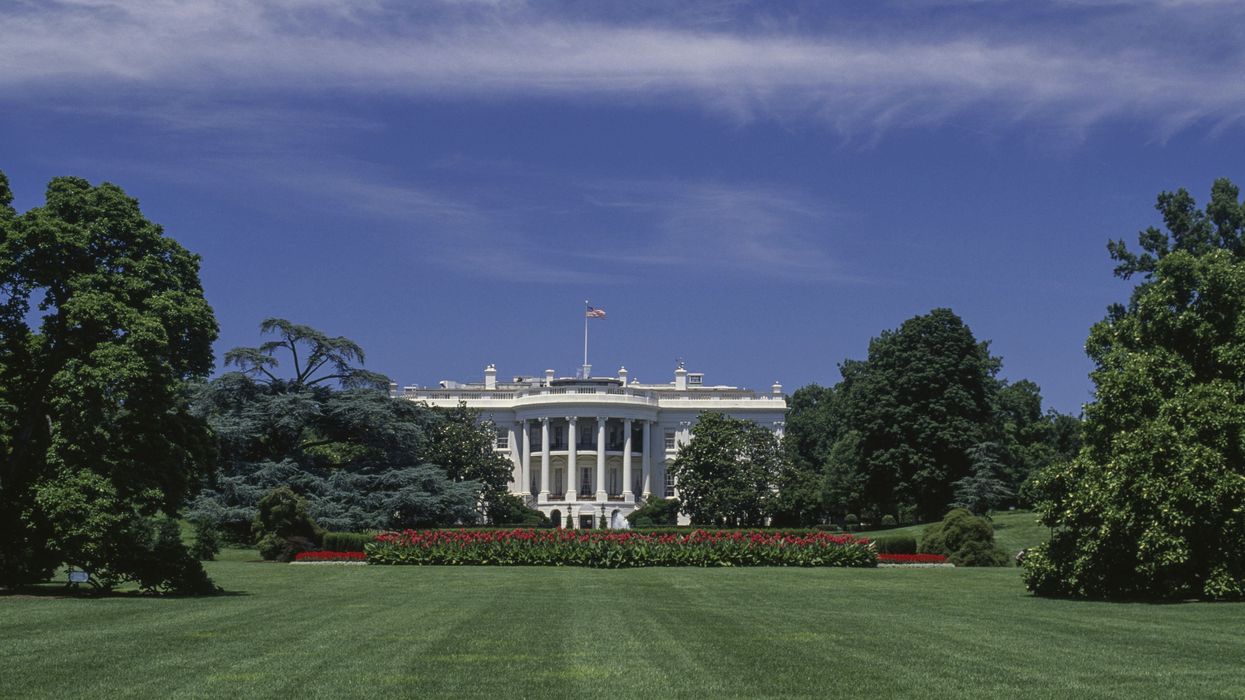Anderson edited "Leveraging: A Political, Economic and Societal Framework" (Springer, 2014), has taught at five universities and ran for the Democratic nomination for a Maryland congressional seat in 2016.
Jim Messina, who ran President Barack Obama's re-election campaign and served as deputy chief of staff in the White House, is the latest Democrat to argue that a No Labels “unity ticket” would lead to a Donald Trump victory because a ticket featuring a Republican and a Democrat would siphon votes from the President Joe Biden. I am not aware of anyone who has brought forward as much impressive data as Messina did in his recent Politico Magazine article to show why third party candidates have never won a U.S. presidential election.
Messina is probably right. If Trump and Biden win their respective parties’ nomination and a No Labels ticket is on the ballot, then Trump probably wins. The key word is "probably." Most arguments about the future are inductive in nature. If you take 99 beans out of a bucket containing 100 beans and all 99 are green, you would be wise to bet a lot of money that the remaining bean is green.
Inductive arguments build up evidence of the observed from which inferences to the unobserved can be made. The stronger the evidence, the stronger the inference will be. You can never infer a conclusion that "must" be true. That is the way deductive arguments work.
In deductive reasoning, an argument is valid if the conclusion follows logically from the premises, and it is sound if it is both valid and the premises are true. When you argue “all men are mortal and Socrates is a man, therefore Socrates is mortal,” you have given a sound deductive argument. Your reasoning is valid, your premises are true and your inference therefore gets you to a conclusion that must be true.
Messina runs a strong inductive argument. He really is giving an analogical inductive argument. He is saying that our political situation today is similar to the political situation of every presidential race, including those where George Wallace, Ross Perot, Ralph Nader and Jill Stein ran third-party campaigns. He argues that third-party candidates always lose big because the Electoral College system makes it nearly impossible for them to win states – only Wallace has won states in fact.
Messina’s reasoning indicates that even if a No Labels ticket can get 35 percent of the overall votes, it will not be clustered in a way to win 270 Electoral Votes; and if no one got to 270, Messina would presumably say, the House of Representatives would pick the nominee of majority’s party and not a third-party candidate.
This is the fundamental question for Messina and others: Are the political and social conditions in America today sufficiently analogous to every previous presidential election year to argue that a third-party ticket has virtually no chance of winning?
In an analogical argument, you say that Object X and Y are similar in having properties a, b, c and d. Object X has property e. Thus, Object Y also has property e. In our case, Object X would be previous third-party candidates and Object Y would be the No Labels unity ticket. The relevant properties are: running in a presidential race, the Electoral College system determines how to count the votes, a two-party system dominates politics and both parties have considerable respect, and the public is not severely polarized. Property e represents losing the presidential race.
The question is whether Object Y, the No Labels ticket, is really running in a race with properties c and d. Given both the low regard both major parties have in public opinion polls, and given the threat to our democracy of a Trump presidency felt by over half of the public and which is a major cause of polarization, it could be argued that the political and social conditions are not similar to the political and social conditions when previous third-party candidates ran. Thus the inference to e (the third-party candidate will lose) is not strong.
Perhaps enough Democrats and Republicans would vote for a No Labels unity ticket, particularly Democrats, Republicans and independents who were not planning to vote at all. When the world changes it frequently does because situations in the present are not analogous to situations in the past.
Are we at such a point? No one really knows the answer to this question. Yet it is just as important to try to answer this question as it is to gather the data Messina has gathered to argue that Trump would win the election if there is a No Labels unity ticket.




















